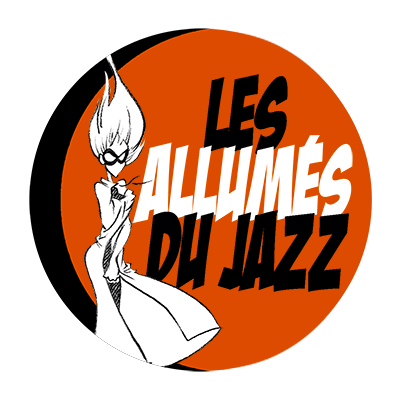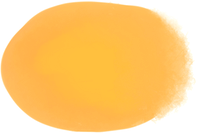Artistes / Artists
Urs Leimgriber, Carlos Zingaro, Jean-Marc Foussat
Label(s)
FOU RECORDS
Le mystère des choses, où est-il ?
Où est-il puisqu'il ne se montre pas,
Serait-ce pour nous montrer qu'il est mystère ?
Qu'en sait le fleuve et qu'en sait l'arbre ?
Et moi, qui ne suis rien de plus qu'eux, qu'est-ce que j'en sais ?
Chaque fois que je regarde les choses et pense à ce que les hommes pensent d'elles,
Je ris comme un ruisselet qui bruit frais sur une pierre.
Car l'unique sens occulte des choses
Est qu'elles n'ont pas de sens occulte du tout.
Ce qui est plus étrange que toutes étrangetés
Et que les rêves de tous les poètes
Et les pensées de tous les philosophes,
C'est que les choses soient réellement ce qu'elles semblent être
Et qu'il n'y ait rien à comprendre.
Oui, voici ce que mes sens ont appris tout seuls :
Les choses n'ont pas de signification : elles ont de l'existence.
Les choses sont l'unique sens occulte des choses.
Fernando Pessoa
Jean-Marc FOUSSAT (Synth. AKS, voc, jouets), (Urs Leimgriber) ts, ss), Carlos Zingaro (vln)
LISTE DES PISTES AUDIO :
l'Aile d'Icare 42' 02"
Is it the fall of Icarus, whose vertiginous stridulation we overhear from the very first notes of this album on which Jean-Marc Foussat once again blends his AKS synth and his voice? A sharp whistle has just pierced the atmosphere and plunges into the urban hustle and bustle, where police sirens can easily be heard. It's with this scene worthy of a Michael Mann or Christopher Nolan film that this trio recording opens, featuring saxophonist Urs Leimgruber, already the creator of a magnificent duet with Jean-Marc - Face to Face, 2019 - and violinist Carlos Zingaro, also familiar with his universe. Let's not fool ourselves, though!
As in those series where the end is revealed before we go back in time in a long flashback, the trio follows Icarus' flight until his predicted fall, leaving the stops and the route to the imagination. And it's a nocturnal swamp whose thick bubbles burst at the surface, rustling foliage that living creatures push aside in their path, a train that rushes through a tunnel and at the exit discovers a people swarming and murmuring under the wind. For a long time, the saxophone seems diluted in the synthesizer's matter, while the violin, more distinct, accompanies the traveler and delimits with its arabesques the place and time of each stage. Until, that is, the tenor extracts itself from the mechanical magma and overhangs its tumult to support the violinist in his virtuoso quest to the frontiers of noise. The vibrations of a Jew's harp, swallowed and digested by the AKS synthesizer, become a flock of wild birds, themselves carried along by the waves of a luminous scenography. Lurking in the shadow of the din, Urs Leimgruber's soprano waits for his moment, a clearing of silence whose edge he can define with his confident features, before his tenor disrupts the course of the mains-connected violin, underscored by deep bass, to finally melt into a cavalcade of electronic percussion.
The end of the album takes us closer to the sun, through wide-open layers that the tenor punctuates with his masterly strokes. The lyricism of these exchanges, where nothing seemed forbidden, will have led us, despite some dark accidents along the way, to the clarity of a white light, superimposed, where a few feathers stolen from Icarus' wing barely flutter. It's a sign of Jean-Marc Foussat's optimism that, despite the imminent danger, he prefers to sacrifice the inevitable outcome of his tragedy right from the start.
Joël Pagier
Revue & Corrigée n° 134 December 22
LISTE DES PISTES AUDIO :
l'Aile d'Icare 42' 02"
Is it the fall of Icarus, whose vertiginous stridulation we overhear from the very first notes of this album on which Jean-Marc Foussat once again blends his AKS synth and his voice? A sharp whistle has just pierced the atmosphere and plunges into the urban hustle and bustle, where police sirens can easily be heard. It's with this scene worthy of a Michael Mann or Christopher Nolan film that this trio recording opens, featuring saxophonist Urs Leimgruber, already the creator of a magnificent duet with Jean-Marc - Face to Face, 2019 - and violinist Carlos Zingaro, also familiar with his universe. Let's not fool ourselves, though!
As in those series where the end is revealed before we go back in time in a long flashback, the trio follows Icarus' flight until his predicted fall, leaving the stops and the route to the imagination. And it's a nocturnal swamp whose thick bubbles burst at the surface, rustling foliage that living creatures push aside in their path, a train that rushes through a tunnel and at the exit discovers a people swarming and murmuring under the wind. For a long time, the saxophone seems diluted in the synthesizer's matter, while the violin, more distinct, accompanies the traveler and delimits with its arabesques the place and time of each stage. Until, that is, the tenor extracts itself from the mechanical magma and overhangs its tumult to support the violinist in his virtuoso quest to the frontiers of noise. The vibrations of a Jew's harp, swallowed and digested by the AKS synthesizer, become a flock of wild birds, themselves carried along by the waves of a luminous scenography. Lurking in the shadow of the din, Urs Leimgruber's soprano waits for his moment, a clearing of silence whose edge he can define with his confident features, before his tenor disrupts the course of the mains-connected violin, underscored by deep bass, to finally melt into a cavalcade of electronic percussion.
The end of the album takes us closer to the sun, through wide-open layers that the tenor punctuates with his masterly strokes. The lyricism of these exchanges, where nothing seemed forbidden, will have led us, despite some dark accidents along the way, to the clarity of a white light, superimposed, where a few feathers stolen from Icarus' wing barely flutter. It's a sign of Jean-Marc Foussat's optimism that, despite the imminent danger, he prefers to sacrifice the inevitable outcome of his tragedy right from the start.
Joël Pagier
Revue & Corrigée n° 134 December 22


